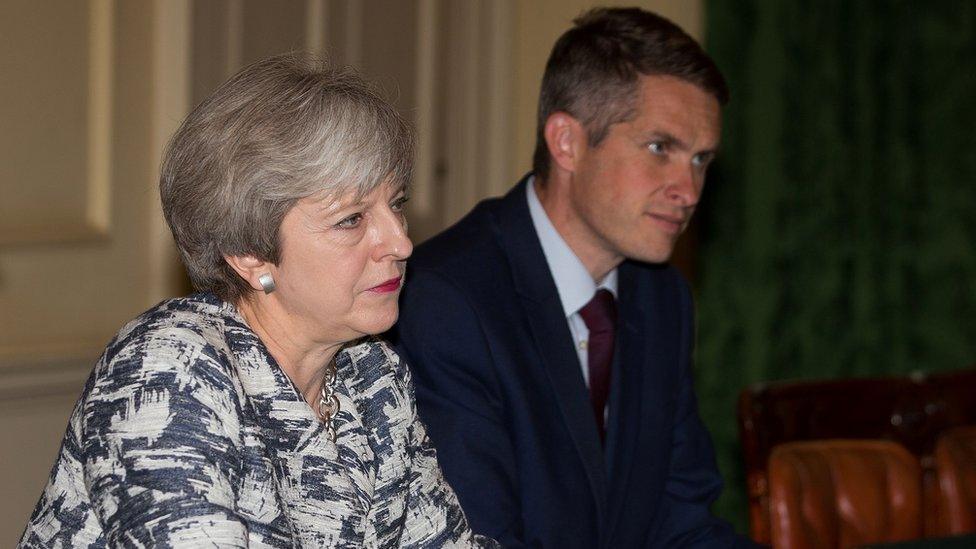Gavin Williamson sacking: What is the Official Secrets Act?
- Published

Gavin Williamson has been sacked as defence secretary for allegedly disclosing plans to allow Chinese telecoms giant Huawei to help build the UK's 5G mobile internet network. Mr Williamson has strenuously denied he leaked the information from the National Security Council.
Following the dismissal, some MPs have questioned whether the Official Secrets Act has been breached and now want a police investigation.
So how does the law work and what are the penalties?
What is the Official Secrets Act?
The law was first created in 1911 and updated in 1989.
A person can be guilty of an offence if they make a "damaging disclosure of any information or document, external" relating to security or intelligence of which they are in possession.
The law is strictest for those working for the security and intelligence services, past and present. Any unauthorised disclosure - under any circumstances - is a criminal offence.
But the rules are different for Crown servants (for example, civil servants, government ministers, the armed forces or police). In these cases, a person is only guilty of an offence if the leaked information falls into one of the following categories and is deemed "damaging".
Security and intelligence
Defence
International relations
Information which might lead to a crime
Foreign confidences
Investigations under the Communications Act 1985 and Security Service Act 1989
A person does not have to officially "sign" the Official Secrets Act to be bound by it. The 1989 Act states that a person can simply be "notified" that it applies to them.
For example, it might be stated in a government employee's contract that the Act applies to them when they start work.

Theresa May said the leak was "a very serious matter" in her letter to Mr Williamson
Why aren't the police investigating?
Following Mr Williamson's sacking, the Liberal Democrat deputy leader, Jo Swinson, wrote to the Metropolitan Police Commissioner, Cressida Dick, calling for a criminal investigation.
Ms Dick says the Met will "look at any complaint", but adds the force has not received any referral from the Cabinet Office. The force says it needs a referral and to see material before it can decide whether to carry out an investigation.
Whether or not a disclosure is deemed "damaging" is a decision for the attorney general. Any prosecution, under the 1989 Act, has to be done with their consent.
If the police do decide to investigate, they would aim to determine the nature of the leaked information and who did it.
But No 10 appears to want to draw a line under it. A spokesman said it "considers the matter closed".
How often are people prosecuted?
Prosecutions under the Official Secrets Act are very rare - about one a year - according to the House of the Commons Library.
But over the years, there have been some high-profile cases.
In 1983, civil servant Sarah Tisdall gave documents to The Guardian which gave the arrival date of missiles to an RAF base. She was given a six-month sentence.
In 2002, MI5 agent David Shayler was jailed for six months for giving information to the Mail on Sunday., external
In 2007, Scotland Yard civilian police worker Thomas Lund-Lack gave information to a Sunday Times journalist, external on planned al-Qaeda attacks in Great Britain and the West. His disclosure resulted in an eight-month sentence.
The maximum penalty for an unauthorised disclosure under the Act is two years' imprisonment or an unlimited fine, or both.



- Published2 May 2019
